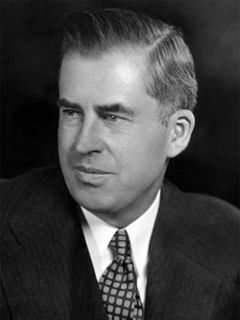A Quote by Ralph Waldo Emerson
If the vast and the spiritual are omitted, so are the practical and the moral.
Related Quotes
In the spiritual domain, criticism is love turned sour. In a wholesome spiritual life there is no room for criticism. The critical faculty is an intellectual one, not a moral one. If criticism becomes a habit it will destroy the moral energy of the life and paralyse spiritual force. The only person who can criticise human beings is the Holy Spirit.
The realization of our soul has its moral and its spiritual side. The moral side represents training of unselfishness, control of desire; the spiritual side represents sympathy and love. They should be taken together and never separated. The cultivation of the merely moral side of our nature leads us to the dark region of narrowness and hardness of heart, to the intolerant arrogance of goodness; and the cultivation of the merely spiritual side of our nature leads us to a still darker region of revelry in intemperance of imagination.
Gratitude is not a spiritual or moral dessert which we may take or push away according to the whims of the moment, and in either case without material consequences. Gratitude is the very bread and meat of spiritual and moral health, individually and collectively. What was the seed of disintegration that corrupted the heart of the ancient world beyond the point of divine remedy...? What was it but ingratitude?
What the world needs today is a definite, spiritual mobilization of the nations who believe in God against this tide of Red agnosticism. It needs a moral mobilization against the hideous ideas of the police state and human slavery. I suggest that the United Nations should be reorganized without the Communist nations in it. It is a proposal based solely upon moral, spiritual and defense foundations. It is a proposal to redeem the concept of the United Nations to the high purpose for which it was created. It is a proposal for moral and spiritual cooperation of God-fearing free nations. And in rejecting an atheistic other world, I am confident that the Almighty God will be with us.
We should seek to free the moral life from the embarrassments and entanglements in which it has been involved by the quibbles of the schools and the mutual antagonisms of the sects; to introduce into it an element of downrightness and practical earnestness; above all, to secure to the modern world, in its struggle with manifold evil, the boon of moral unity, despite intellectual diversity.









































